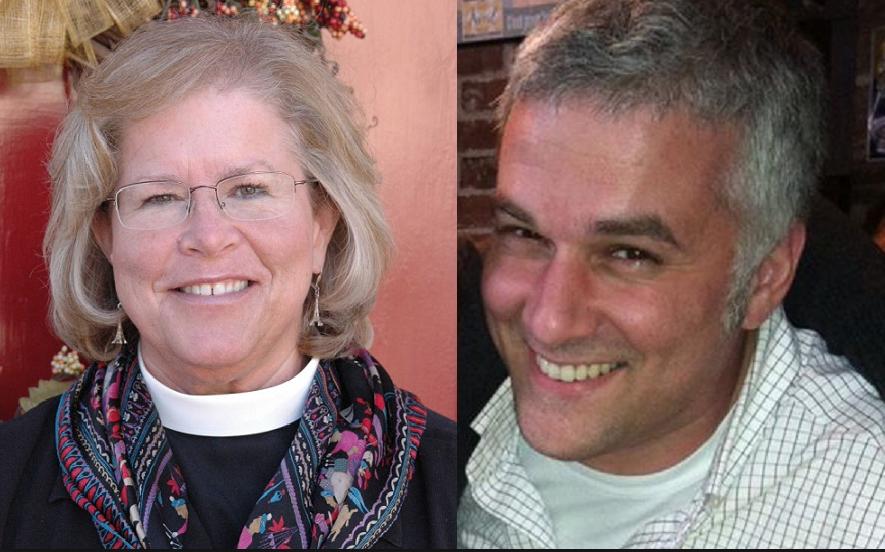After a few weeks of reading, including commentary in the Talbot Spy, and several conversations and emails with friends in Talbot County, Annapolis and Baltimore, I still feel deeply torn about the deadly accident in which a drunk and texting Bishop Heather Cook hit a biker in Baltimore, leaving the victim suffering and dying on the street.
What prompted more than a casual interest in this terrible accident involving the second-ranking clergyperson in the Diocese of Maryland, besides an occasion in 2010 when the Rev. Cook was stopped for drunk driving in Caroline County, was a sermon sent me the past week. A priest at the Church of the Redeemer in Baltimore spoke about “a grace of which we may not yet be aware…the invitation becomes, can we, will we listen more intently, more prayerfully in this darkness.”
The priest, I think, was referring to our personal darkness—our anger and disgust with Bishop Cook’s behavior and actions that resulted in the death of a 41-year-old biker, our questioning of the judgment of the diocese for elevating a person with an addiction, our sorrow for the biker’s family—as opposed to light created by better understanding of, and sympathy toward Bishop Cook.
Perhaps, the priest was calling for forgiveness at a time when many feel unforgiving of a person responsible for another person’s death through alcohol-induced behavior.
I sent the sermon to a friend in Annapolis. She responded that the sermon was a bunch of ‘hooey.’ “She further wrote, “Addiction has nothing to do with forgiveness. High-level institutional appointments have nothing to do with forgiveness.”
I suspect my friend’s viewpoint is shared by others.
I entitled this commentary, “Struggling, “ because the word characterizes my reaction to an accident in Baltimore that easily evokes emotions such as compassion for the biker’s family and Heather Cook, anger that Bishop Cook’s addiction brought death to a 41-year-old man and anguish to his family and friends, understanding about the destructive effect of addiction, disappointment in Bishop Cook and perhaps the Diocese of Maryland—and an as-yet incomplete search for a glimmer of grace that balances my thoughts about a family struck by a terrible tragedy, and a church leader whose addiction led her to a hit-and-run accident punishable both legally and morally.
Justice has a two-edged meaning in this awful story. The legal process will work its will. Bishop Cook must understand the injustice done to the Palermo family, the Diocese of Maryland and herself.
In response to the sermon, another priest, who identifies himself as “a clergy person openly in long-term recovery,” said this about the decision by the diocese to elect Heather Cook as Bishop Suffragan so soon after her incident in Caroline County and three months of rehab:
“But Bishop Cook alone is not at fault. Church communities are often too quick to push those who have had major falls back into the spotlight. They are not doing the one who is recovering any favors by pushing a false rhetoric of “forgiveness” or “grace.” Sometimes grace means saying ‘“you need to work on yourself for a while.” ‘
This priest calls for healthy, energetic discussion within the church about alcohol and addiction among the clergy. He believes such honesty will encourage recovery. He states that personal weaknesses among clergy should be discussed and confronted.
Though I have mentioned the word “grace,” realizing that it carries a different meaning for each of us depending upon our own experiences and faith, I believe I can relate to the following statement by the priest cited in the past paragraphs:
“And in the end, a story of recovery is a story of grace, and a story of the healing power of God’s love for us all. This is the story the Church should be telling because it is a Gospel story.”
Bishop Cook’s addiction and her actions resulting in the hit-and-run death of a biker in Baltimore have struck a discordant note among so many people. I too feel very sad for the victim’s family and his many friends. At the same time, I believe that we all might be more sensitive to others’ imperfections, particularly clergy whom we consider our spiritual leaders.
The priest called for honesty among the clergy about addiction and recovery. The same is true for the secular community.



rachel goss says
“This priest calls for healthy, energetic discussion within the church about alcohol and addiction among the clergy. He believes such honesty will encourage recovery. He states that personal weaknesses among clergy should be discussed and confronted.”
Thank you, Howard, for this piece!
Eleanor Altman says
And what if the perpetrator had been a young African-American male with a record of arrest and drug addiction? What discussion would that evoke, if any? Who would arrange for his treatment and financial support or speak for forgiveness? It is all very troubling.